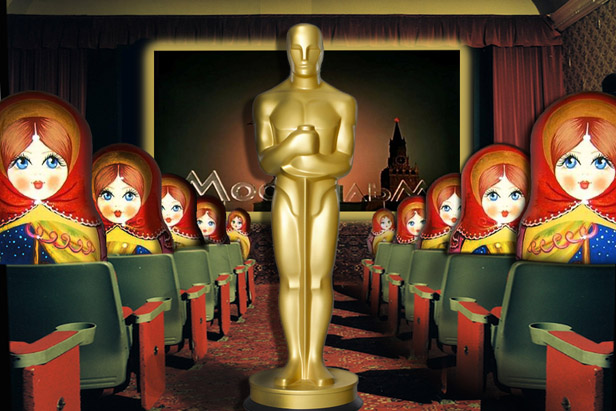Cinematryoshka: Roman Liberov, animating russian literature

Russian cinema is like a matryoshka: following the recursive method, which in the art criticism is called "mise-en-abîme", it plays with the various meanings. Step by step you perceive the sense of the film but each time you understand that there is an unrevealed implication, even more profound. This video-blog is to help you to gain an insight into contemporary Russian cinema.
In this edition: independent non-fiction film director Roman Liberov produces his "writer movies" cycle. Having already made films about Yuri Olesha, Joseph Brodsky, Georgi Vladimov, and Sergei Dovlatov, he is now actively raising funds for a new movie about Ilya Ilf (1897—1937) and Evgeny Petrov (1903–1942), perhaps the most well-known Russian-language writing duo.
Their two volumes charting the exploits of swindler Ostap Bender, "Twelve Chairs" and "The Little Golden Calf," have not lost their relevance today, because, as the director jokes, the central theme is money. Both books follow exploits of Bender and his associates looking for treasure amidst the contemporary Soviet reality. They were written and are set in the relatively liberal era in Soviet history, the New Economic Policy of the 1920s. The main characters generally avoid contact with the apparently lax law enforcement. Their position outside the organized, goal-driven, productive Soviet society is emphasized. It also gives the authors a convenient platform from which to look at this society and to make fun of its less attractive and less Socialist aspects. These are among the most widely read and quoted books in Russian culture. The Twelve Chairs was adapted for popular films both in the USSR and in the USA (by Mel Brooks). The two writers also traveled across the Great Depression-era USA. Shortly after that they published the book "One-storied America", officially translated as Little Golden America (an allusion to The Little Golden Calf).
Making movies about writers is not the most commercially sought-after or financially rewarding occupation. Roman Liberov keeps it in mind. His first films were produced with the support of Russia’s Kultura (Culture) TV station, but the most recent projects have been funded by Roman himself. In addition to sponsorship, he uses crowdfunding. Does this really work in Russia? And why does he have to self-finance his projects? These and other questions are answered by the director himself.
All rights reserved by Rossiyskaya Gazeta.
Subscribe
to our newsletter!
Get the week's best stories straight to your inbox